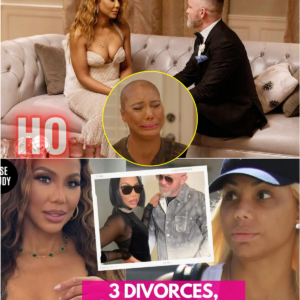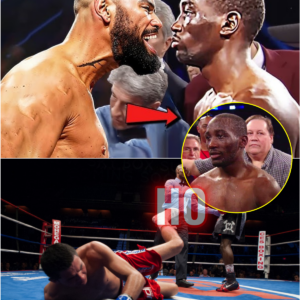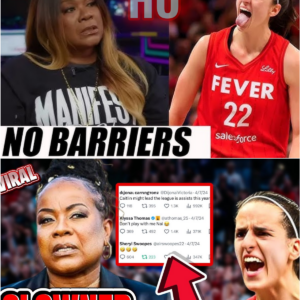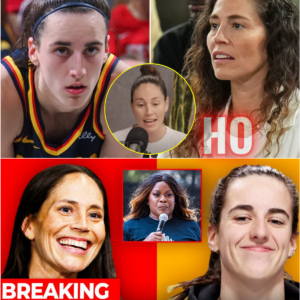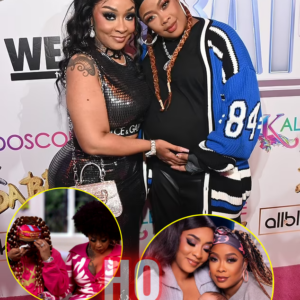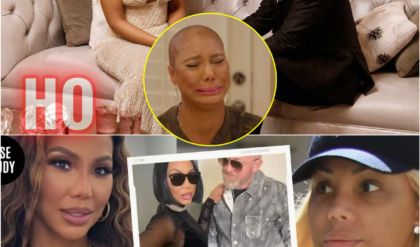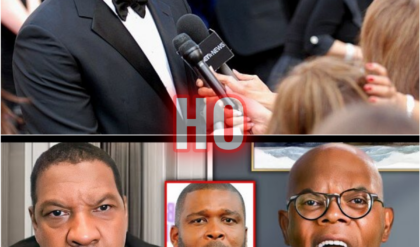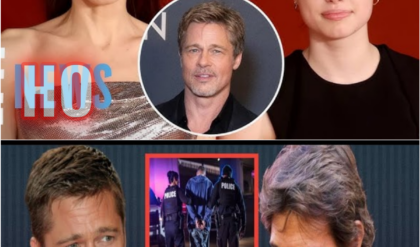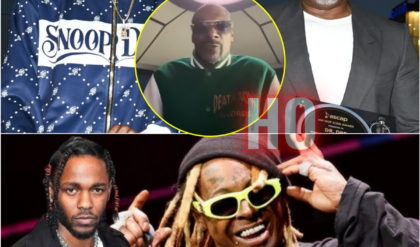Why The BEST Black Actors REFUSE to Film With Tyler Perry | HO
Chris Rock, Jamila Lemieux, and others are all on the same page here, pointing out that Tyler Perry’s casting and storytelling choices might be playing into certain biases. They’re questioning how this mindset could be impacting the film industry and the way Black characters are portrayed on screen. And honestly, this issue of colorism and stereotyping isn’t new to Hollywood.

Tyler Perry is a name synonymous with both commercial success and controversy within the entertainment industry. His rise from homelessness to owning one of the largest movie studios in the country is nothing short of remarkable. However, despite his impressive achievements and the undeniable popularity of his work, a significant number of acclaimed Black actors refuse to work with him. This reluctance speaks volumes about the ongoing debates surrounding his films and their impact on Black representation in Hollywood.
One of the primary reasons behind the hesitation of top Black actors to join Perry’s projects is the persistent criticism of his portrayal of Black characters. Perry’s films and television shows are often accused of perpetuating negative stereotypes. His most famous creation, Madea, has become a symbol of both his success and the critique leveled against his work. Critics argue that the character, played by Perry himself in drag, reinforces outdated and exaggerated stereotypes of Black life, rather than presenting nuanced and respectful portrayals.
Spike Lee, a stalwart of Black cinema, has been vocal about this issue. He has labeled Perry’s work as “coonery” and “buffoonery,” suggesting that it panders to and reinforces harmful stereotypes for commercial gain. Lee’s criticism highlights a broader concern among top actors about the quality and impact of the roles Perry writes for Black performers. The portrayal of Black men, in particular, is often criticized for being one-dimensional and problematic. The villains in Perry’s films are frequently dark-skinned, while lighter-skinned actors are more likely to be cast in positive roles. This pattern has led to accusations of colorism and a lack of genuine representation.
Many Black actors and cultural critics argue that Perry’s success comes at the expense of more accurate and respectful portrayals of Black life. Chris Rock, known for his incisive humor and social commentary, has pointed out a recurring pattern in Perry’s films where darker-skinned Black men are often cast in negative roles. He jokingly suggested that if Tupac Shakur were alive and cast in a Perry film, he would likely be assigned a villainous part. This critique underscores a concern that Perry’s films do not showcase the full spectrum of Black experiences and personalities.
Similarly, Jamila Lemieux, a cultural critic and writer, has expressed frustration with the way Perry’s films depict Black family dynamics. She argues that characters like Madea, while entertaining, do not provide a comprehensive or respectful representation of Black matriarchs. Lemieux’s critique reflects a broader sentiment that Perry’s work, while commercially successful, may not always contribute positively to the broader cultural narrative about Black people.

The reluctance of top Black actors to work with Perry is also tied to broader industry dynamics. Perry’s significant commercial success and the power he wields as a producer and studio owner have not translated into universal respect or trust within the industry. Some actors view Perry’s success with skepticism, particularly when it comes to how he manages his productions and interacts with other creatives.
There have been reports of Perry being less than supportive of his collaborators. For instance, there were allegations that Perry fired writers from his show “House of Pain” after they requested fair contracts. This incident, among others, has contributed to a perception that Perry may not always prioritize fair treatment for those who work with him. Such actions can impact the willingness of established actors to join his projects, preferring instead to align with other filmmakers who they believe offer more equitable working conditions and creative respect.
For many acclaimed Black actors, the decision to avoid working with Perry is rooted in a desire to maintain artistic integrity. Actors like Denzel Washington, Wesley Snipes, and others have often chosen projects that they believe contribute positively to Black representation and avoid reinforcing negative stereotypes. The choice to distance themselves from Perry’s films can be seen as a stance against what they perceive as harmful portrayals that do not align with their vision of Black cinema.
Dave Chappelle’s well-known critique of the industry’s tendency to have Black men dress in drag, which he linked to a larger pattern of compromise and degradation, also reflects this sentiment. Chappelle’s refusal to participate in such scenes underscores a broader dissatisfaction with the ways Black actors are sometimes pressured to conform to roles that they find problematic or demeaning.
The resistance of top Black actors to work with Perry highlights an important conversation about the need for diverse and respectful representations of Black people in media. While Perry’s films are undeniably popular and have a large audience, they also reflect a narrow and often problematic view of Black life. The desire for more nuanced, multifaceted portrayals is driving many top actors to seek out projects that offer richer and more respectful narratives.
This need for diverse representation is not only about avoiding stereotypes but also about creating opportunities for Black actors to play a wider range of roles. As the entertainment industry continues to evolve, there is a growing demand for stories that reflect the complexity of Black experiences, rather than relying on simplistic or harmful portrayals.
The decision of many acclaimed Black actors to refuse to work with Tyler Perry is rooted in a complex mix of concerns about representation, industry dynamics, and personal values. While Perry’s success and the popularity of his work are undeniable, the critiques and reluctance from some of the most respected names in Black cinema underscore a broader debate about the impact of media portrayals on cultural perceptions and the need for more respectful and nuanced representations of Black life.
As Hollywood continues to grapple with these issues, the voices of Black actors and critics will remain crucial in shaping the future of Black representation in media. The push for more authentic and diverse portrayals reflects a broader desire for change and a recognition of the power that media holds in shaping cultural narratives.
VIDEO:
News
Her MOUTH Was So LOUD, He DUMPED Her 40 Days After the Wedding | Tamar Braxton’s 3rd FAILED Marriage | HO
Her MOUTH Was So LOUD, He DUMPED Her 40 Days After the Wedding | Tamar Braxton’s 3rd FAILED Marriage | HO In the world of reality TV and celebrity drama, few stories are as perplexing and dramatic as Tamar Braxton’s…
This FOOL Tried to SCARE Terence Crawford… INSTANT KARMA | HO
This FOOL Tried to SCARE Terence Crawford… INSTANT KARMA | HO In this video, witness the brilliance of Terence Crawford as he outclasses the aggressive Hank Lundy. In the annals of boxing, few moments capture the essence of a fighter’s…
‘Female, Fearful, and Unemployed’: Sheryl Swoopes Gets CLOWNED By WNBA FANS After Caitlin Clark DESTROYS Another WNBA Record! | HO
‘Female, Fearful, and Unemployed’: Sheryl Swoopes Gets CLOWNED By WNBA FANS After Caitlin Clark DESTROYS Another WNBA Record! | HO Caitlin Clark, the rookie sensation from the Indiana Fever, has once again shattered a record, and the WNBA community is…
Caitlin Clark Just Revealed $50,000,000 Nike Deal That SHOCKED The World! | HO
Caitlin Clark Just Revealed $50,000,000 Nike Deal That SHOCKED The World! | HO The world of sports marketing has been buzzing with excitement as Caitlyn Clark, the phenomenal rookie from the Indiana Fever, unveils a groundbreaking endorsement deal with Nike…
Sue Bird SHUTS DOWN Caitlin Clark Bullies ONCE AND FOR ALL! What She Said Changes Everything! | HO
Sue Bird SHUTS DOWN Caitlin Clark Bullies ONCE AND FOR ALL! What She Said Changes Everything! | HO In the world of sports, legends often take a while to warm up to newcomers. Sue Bird, a WNBA icon with a…
Rapper Da Brat offers apology after joking about decision with wife Jesseca ‘Judy’ Harris-Dupart to select non-bl@ck sperm donor | HO
Rapper Da Brat offers apology after joking about decision with wife Jesseca ‘Judy’ Harris-Dupart to select non-bl@ck sperm donor | HO Da Brat has apologized for joking that she and her wife Jesseca ‘Judy’ Harris-Dupart made to select a non-black…
End of content
No more pages to load
